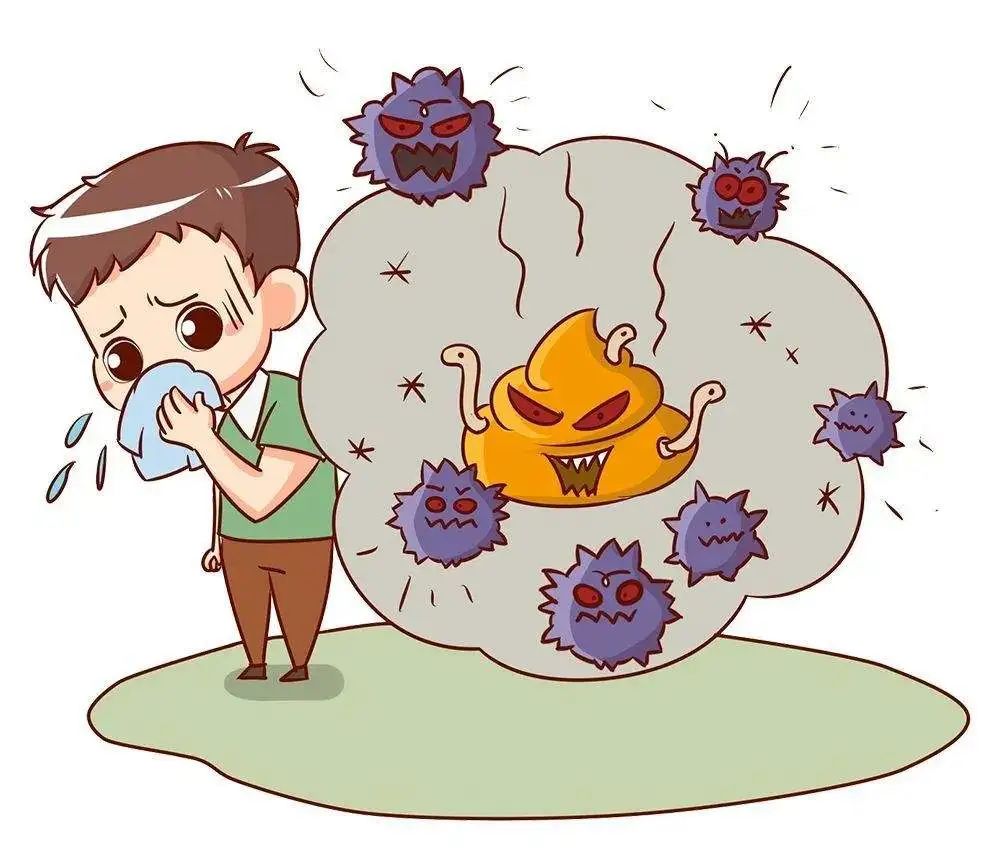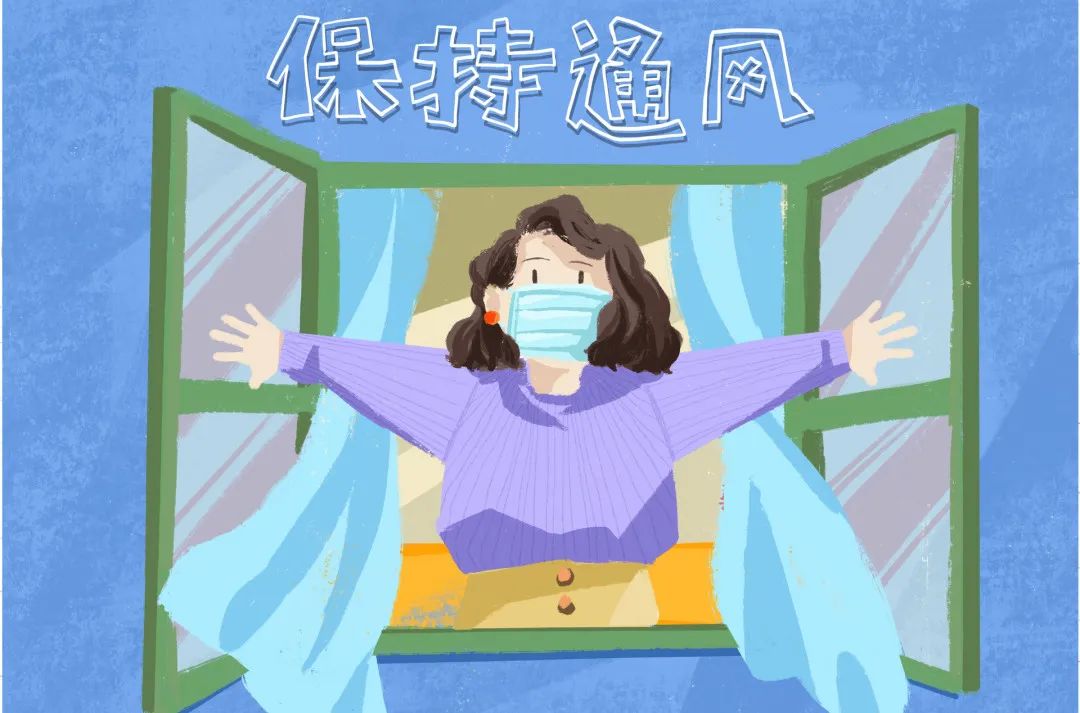In summer, intestinal infectious diseases are high, and you are not afraid of doing it!
Author:Shandong Disease Control Time:2022.07.15

Summer has arrived. Due to the high temperature and high humidity, it is conducive to the reproduction of germs, and food is vulnerable to pollution. Therefore, summer is the high incidence of intestinal infectious diseases.

Infement infectious diseases are mainly diarrhea, nausea, vomiting, abdominal pain, loss of appetite, etc., which can cause dehydration, which can even be dangerous in individual cases.

Intestinal infection
01
What is intestinal infection disease?
Infectious diseases are a group of infectious diseases caused by infection caused by the pathogen to invade the intestinal tract. Common intestinal infectious diseases include bacterial dysentery, infectious diarrhea, typhoid fever or sub -typhoid fever, hand, foot and mouth disease, hepatitis A and pental hepatitis.

02
How is intestinal infectious disease spread?
01
Spread through water
For areas that lack safe drinking water, transmission of water is the most important way to spread some intestinal infectious diseases. The characteristics of water transmission are often showing the popularity of outbreaks, and patients are mostly distributed along the polluted water bodies.

02
Disseminate
Pollutoring foods in the transmission of intestinal infectious diseases are generally transmitted in the transmission of water. However, in areas with safe drinking water, foods are contaminated with pathogenic bacteria, which can cause influence or even outbreaks of intestinal infectious diseases. Food dissemination has a lot to do with the methods of production, cooking and eating. Therefore, the continuous monitoring of aquatic products and water pollution in some key areas is essential for analyzing the source of the epidemic and evaluating the development of the epidemic.

03
Spread through life
Patients with intestinal infectious diseases, stools or vomiting of fungi, and other contaminated items are rare in large-scale transmission. This kind of transmission is mainly due to the infection of individual personnel because of the passage-mouth pathway.


02
How to prevent intestinal infectious diseases
01
Pay attention to drinking water hygiene
High temperature can kill pathogenic microorganisms, and drink water after drinking water before drinking.

02
Pay attention to food hygiene
1) Food should be cooked and separated to avoid cross -pollution.
2) The remaining foods should be stored in the refrigerator in time, and the storage time should not be too long. Before consumption, it needs to be heated to heat, because the low temperature of the refrigerator can only delay bacterial growth and cannot sterilize.
3) Try to eat foods that are prone to pathogenic bacteria, such as snails, shells, crabs and other aquatic products, especially do not eat seafood on the flowing roadside stalls.
4) Various sauce products or cooked meat products should be heated again before eating.
5) Cold dishes can be added with vinegar and garlic.
03
Cultivate good dietary hygiene habits
1) Pay attention to the hygiene of your hand, usually wash your hands, and wash your hands before and after meals;
2) Do not overeating, do not eat corrupt or deteriorated foods, and eat raw foods to be washed to minimize the intake of raw cold foods;
3) For families with pets, we must do a good job of pets. At the same time, we must warn the children not to feed their pets while eating.
04
Try to minimize contact with patients with diarrhea
Try to minimize contact with patients with diarrhea, tableware, toilets, and bedding that patients have used should be disinfected to avoid the spread and popularity of the disease.
05
Adjust the diet structure and balance the diet
Adjust the diet structure, balance diet, reasonable nutrition, and improve the body's immunity. Strengthen physical exercise, strengthen the ability to resist disease, and pay attention to the combination of work and rest. According to climate change, timely increase or decrease clothes to avoid colds.

06
Delivery and utensils should be baptized and replaced diligently
The clothes and utensils should be baptized frequently. Pay attention to the ventilation of the living room, keep the indoor air fresh, and ventilation and ventilation are effective ways to reduce and eliminate pathogenic bacteria.


03
What should I do if diarrhea occurs?
It is not advocated that fasting and water forbidden water should be eaten with light, digestible liquid or semi -current foods. After the symptoms improve, the symptoms gradually transition to normal diet. Here I will introduce a good recipe for diarrhea: 1.75g of fine salt per 500ml rice soup, supplement the amount of 20-40ml per kilogram, take it within 4 hours, and then replenish the liquid as appropriate.

2. If the diarrhea is not serious, it can generally improve the symptoms within 2-3 days by adjusting diet, rest, and symptomatic treatment. Those with severe diarrhea and especially dehydration symptoms should be used to go to the hospital intestinal clinic for medical treatment in time.
3. Desequent is a common complication of diarrhea, manifested as thirst, less urine, dry skin and wrinkles, and sinking eyes; in order to prevent dehydration, you should drink more sugar and salt water, and it is best to go to the pharmacy to buy "oral replenishment salt"; it has occurred. Patients with dehydration or severe vomiting cannot drink water, they need to go to the hospital in time to take treatment measures such as intravenous supplementation according to the doctor's order.

4. Many patients use antibiotics as soon as they have diarrhea, which is wrong. Because most diarrhea does not require antibiotic treatment, abuse of antibiotics can cause normal intestinal flora dysfunction, but it is not conducive to the recovery of diarrhea. If you are not sure if antibiotics should be used, please go to the intestinal clinic.
5. Patients who go to the intestinal clinic can use a clean small box or fresh -keeping bag to leave fresh stool specimens to the hospital for testing, so that doctors can treat them in a targeted manner.

Long press the picture below, you can conduct self -examination of the peers

Long press the picture below, you can perform the epidemic risk level query


Meet your health and look forward to you
share
like
look in
- END -
Dazhen Town, Weihai Rongcheng City, with an emergency exercise of "three districts" emergency exercise to build an epidemic prevention and control barrier

On June 24th, Dazhen Town, Rongcheng City, Weihai City launched an emergency drill...
Omikon has a new branch in my country's disease control experts closely paying attention to the trend
Xinhua News Agency, Beijing, July 7th (Reporter Gu Tiancheng) The gene sequencing results of the recent new crown pneumonians in some regions of the country show that the virus belongs to the BA.5.2 b